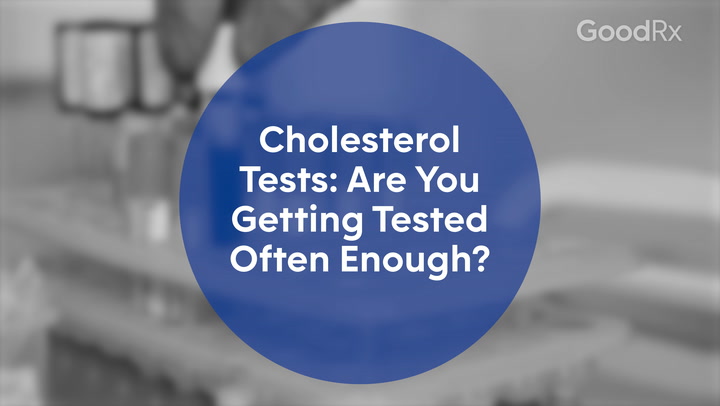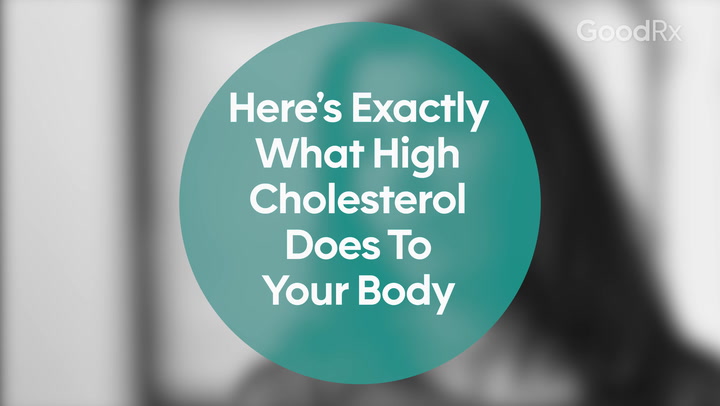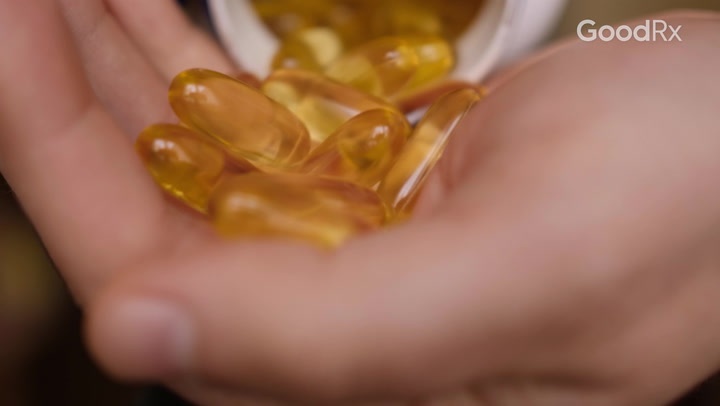
Does Alcohol Raise Cholesterol Levels? Here’s What You Should Know
Key takeaways:
Light to moderate alcohol use may have beneficial effects on HDL (“good”) cholesterol, but the risks of drinking alcohol outweigh any potential benefits.
Heavier alcohol use increases LDL (“bad”) cholesterol and triglycerides, which can raise your risk of heart disease and other health issues.
To minimize the health problems caused by alcohol, like cancer, experts recommend women to have less than 1 drink per day, and men 2 drinks per day.
Table of contents

Ever heard that having a glass or two of wine a day is good for your health? These claims are partly based on studies showing that low doses of alcohol may be able to boost your levels of high-density lipoprotein (HDL), or “good cholesterol.”
But the truth is: Alcohol is bad for your health, even in small amounts. A recent policy brief issued by the World Heart Federation says that no amount of alcohol is safe for health, especially if you have heart disease or other chronic illness. In fact, alcohol also causes cancer.
You may know that drinking alcohol regularly can lead to liver damage and high blood pressure. But how about your cholesterol? Let’s take a closer look below.
What is cholesterol?
Cholesterol is a waxy, fat-like substance that’s a natural part of all cells and organs in your body. Cholesterol helps make hormones and vitamin D. And it comes mainly from your liver and the foods you eat.
The main types of cholesterol are:
High-density lipoprotein (HDL) is the “good” type of cholesterol because it carries cholesterol from your blood to your liver to be removed from the body.
Low-density lipoprotein (LDL) is the “bad” type of cholesterol because high levels of LDL can contribute to cholesterol buildup in the arteries, causing them to narrow.
Total cholesterol is the total amount of cholesterol in the blood.
Is red wine good for you? Do the benefits of drinking red wine outweigh the risks? Learn more about the effects of red wine on the body.
Alcohol and high blood pressure: Alcohol can have significant effects on your blood pressure.
Can you drink alcohol while on statins? There are some things you need to know before drinking alcohol if you take a statin.
Triglycerides is another type of fat in the blood, which is stored in cells and used for energy between meals. Cholesterol and triglyceride levels are measured by testing your blood. This can be done in a healthcare professional’s office or laboratory — or by special tests at home.
Does alcohol affect cholesterol?
The short answer is yes, alcohol affects cholesterol. But — exactly how alcohol affects your cholesterol levels is complicated, and depends on several factors, including your genetics and drinking patterns.
To simplify this, let’s break it down by what alcohol does to cholesterol based on how much you drink.
Light to moderate alcohol use
There’s some evidence that light to moderate use of alcohol may actually help your cholesterol. If you’re a man and drink less than 14 alcoholic drinks per week, or a woman and drink less than 7 drinks per week, you fall into this category.
Light to moderate use of alcohol has been shown to raise HDL, the good type of cholesterol. High HDL cholesterol lowers the amount of plaque and inflammation in the arteries. And this can lower the risk of heart disease and stroke.
But before you rush to the local bar, keep in mind: The American Heart Association says that “no research has proved a cause-and-effect link between drinking alcohol and better heart health.” In other words, when it comes to your heart health, skipping the alcohol is still the best choice.
And if you really want to get your HDL up, try exercise. Exercise not only works better than alcohol at raising HDL, but also comes with many additional health benefits.
Heavy alcohol use
As your alcohol use becomes heavy — defined as more than 14 drinks a week for men and 7 drinks a week for women — benefits on cholesterol disappear. Heavy drinking is consistently linked to higher LDL cholesterol and triglyceride levels.
In one study, binge drinking (8 or more drinks for women and 10 or more drinks for men per day) led to a 2 to 8 times higher risk of high triglyceride and total cholesterol levels. And, elevated cholesterol and triglyceride levels are closely associated with development of heart disease and other health issues.
How much can alcohol raise cholesterol?
There are not a lot of studies on this topic. This is likely because how alcohol affects cholesterol varies from person to person and can depend on several factors — like your liver function. Your liver enzymes, which vary based on your genetics, can affect how you process both alcohol and cholesterol.
What has been proven is that in heavy drinkers, the more alcohol that’s consumed, the higher the cholesterol levels tend to go. And — a rise in cholesterol levels was linked to a decline in normal liver function.
Remember, because alcohol is often consumed mixed with sugary drinks and extra food, your body is more likely to store extra calories as fats in the form of triglycerides. High triglyceride levels can lead to liver and pancreas problems — and contribute to the hardening of the arteries (atherosclerosis).
Will alcohol interfere with my cholesterol medications?
Technically, there are no specific interactions between statin medications and alcohol. However, FDA package inserts for common statin medications like atorvastatin say it should be used with caution in people who consume “substantial quantities of alcohol”. But no specific quantity is mentioned. Even low doses of statins can be increased in people who have liver disease from heavy alcohol use.
Since many common medications can have interactions with alcohol, it’s a good idea to be open with your primary care providers about how much alcohol you’re drinking, so they can recommend options that are safe for you.
What type of alcohol causes high cholesterol?
There’s no good evidence that the type of alcohol you drink (wine, beer, liquor) matters much when it comes to raising cholesterol. It’s the quantity and frequency of drinking that tend to have more of an impact on lipid (fat) levels.
Does red wine lower cholesterol?
It’s not clear whether red wine lowers total cholesterol. Total cholesterol is made up of HDL cholesterol, LDL cholesterol, and triglycerides. The amount of red wine you drink can impact all three of these types of cholesterol in different ways.
Some research has shown a positive relationship between red wine and HDL cholesterol levels. People who drink a moderate amount of red wine tend to have higher HDL, or good cholesterol, levels. However, this benefit is probably due to the other beneficial components of wine — like resveratrol (the compound in red wine that gives it its color) — rather than the alcohol itself.
That’s why the American Heart Association currently doesn’t recommend drinking wine or any other form of alcohol to gain potential benefits.
If you’re going to drink alcohol, moderate amounts of red wine is likely the best alcohol for cholesterol levels. And it’s probably the best alcohol for high triglycerides, too. That is, as long as you don’t drink red wine with fatty foods, like cheese. When taken together, fatty foods and alcohol can raise triglycerides significantly more than either one does alone.
Triglycerides and alcohol can both have a negative impact on the heart. This is especially true if alcohol use is heavy.
If you choose to drink red wine for heart health, do so in moderation. Excess alcohol of any type can lead to higher cholesterol, triglycerides and other serious health consequences.
How much alcohol is too much?
The effect of alcohol on health can vary from person to person, depending on factors like gender, medical conditions, and medications. But, as a general rule — according to the Dietary Guidelines for Americans — alcohol intake should be restricted to 2 or less standard drinks a day for men, and 1 or less standard drinks a day for women.
Keep in mind that a “standard drink” is much smaller than most people think. In the U.S., one standard drink is the same as:
12 oz of regular beer
5 oz of wine
1.5 oz of 80-proof distilled spirits
Aside from raising cholesterol levels, excessive drinking is also linked to a long list of other health problems, including:
Cancer
Heart disease
Birth defects
Alcohol poisoning
If you think you may have a problem with your drinking, help is available, either through your primary care physicians or resources like the Substance Abuse and Mental Health Services Administration (SAMHSA).
Other drinks to avoid if you have high cholesterol
Alcohol isn’t the only drink that can impact your cholesterol and triglyceride levels. Just like foods, drinks that contain added fat and sugar can raise cholesterol and triglycerides. Some other drinks to avoid if you have high cholesterol include:
Coffee or tea with added fat or sugar (cream, half and half, whole milk, or fatty plant milks)
Smoothies with added fat or sugar
Soft drinks, energy drinks or sports drinks with added sugar
Ice-cream drinks
Drinks with coconut milk or palm oil
Dairy-based drinks
What’s considered high cholesterol?
High cholesterol — defined as a total blood cholesterol of greater than 200 mg/dL— affects almost 40% of adults in the U.S.
The normal ranges for cholesterol and triglyceride levels for adults 20 years and older are as follows:
Lab | Optimal level |
|---|---|
Total cholesterol | Lower than 150 mg/dL |
LDL cholesterol | Lower than 100 mg/dL |
HDL cholesterol | Men: 40 mg/dL or higher Women: 50 mg/dL or higher |
Triglycerides | Lower than 150 mg/dL |
If you have high cholesterol, there are several things you can do to lower it, such as eating a healthier diet, exercising regularly, and cutting down on alcohol.
The bottom line
Studies have shown that alcohol can have either positive or negative effects on cholesterol levels and heart health depending on how much you drink. The overall recommendation, though, is that less is better. The good news? You are in control. So, while you may still be able to enjoy a drink on occasion, it’s best for your health to limit alcohol as much as possible.
Why trust our experts?



References
American Heart Association. (2019). Is drinking alcohol part of a healthy lifestyle?
American Heart Association. (2024). Prevention and treatment of high cholesterol (hyperlipidemia).
American Heart Association. (2024). What is cholesterol?.
Arora, M., et al. (2022). The impact of alcohol consumption on cardiovascular health: Myths and measures. World Heart Federation Policy Brief. Global Heart.
Bailey, A., et al. (2021). Biochemistry, high density lipoprotein. StatPearls.
Centers for Disease Control and Prevention. (2024). Alcohol use and your health.
Centers for Disease Control and Prevention. (2024). Preventing high cholesterol.
Centers for Disease Control and Prevention. (2024). Testing for cholesterol.
Chiva-Blanch, G., et al. (2015). Effects of alcohol and polyphenols from beer on atherosclerotic biomarkers in high cardiovascular risk men: A randomized feeding trial. Nutrition, Metabolism, and Cardiovascular Diseases.
Day, E., et al. (2019). Alcohol use disorders and the heart. Addiction.
de Oliveira e Silva, E. R. (2000). Alcohol consumption raises HDL cholesterol levels by increasing the transport rate of apolipoproteins A-I and A-II. Circulation.
Edenberg, H. J. (2007). The genetics of alcohol metabolism: Role of alcohol dehydrogenase and aldehyde dehydrogenase variants. Alcohol Research and Health.
Hansen, A. S., et al. (2005). Effect of red wine and red grape extract on blood lipids, haemostatic factors, and other risk factors for cardiovascular disease. European Journal of Clinical Nutrition.
Klop, B., et al. (2013). Alcohol and plasma triglycerides. Current Opinion in Lipidology.
Kwon, Y. J., et al. (2016). High-risk drinking is associated with dyslipidemia in a different way, based on the 2010-2012 KNHANES. Clinica Chimica Acta.
MedlinePlus. (2020). Cholesterol levels: What you need to know.
Minzer, S., et al. (2020). The effect of alcohol on cardiovascular risk factors: Is there new information? Nutrients.
National Institute on Alcohol Abuse and Alcoholism. (2023). Drinking levels defined.
Pfizer Ireland Pharmaceuticals. (2009). Lipitor [package insert].
Piano, M. R. (2017). Alcohol’s effects on the cardiovascular system. Alcohol Research: Current Reviews.
Pownall, H. J., et al. (1999). Effect of moderate alcohol consumption on hypertriglyceridemia: A study in the fasting state. Archives of Internal Medicine
Rosoff, D. B., et al. (2019). Association of high-intensity binge drinking with lipid and liver function enzyme levels. JAMA Network Open.
Salehi, B., et al. (2018). Resveratrol: A double-edged sword in health benefits. Biomedicines.
Tabara, Y., et al. (2016). Mendelian randomization analysis in three Japanese populations supports a causal role of alcohol consumption in lowering low-density lipid cholesterol levels and particle numbers. Atherosclerosis.
Tsao, C. W., et al. (2022). Heart disease and stroke statistics—2022 update: A report from the American Heart Association. Circulation.
U.S. Department of Agriculture, et al. (2020). Dietary Guidelines for Americans, 2020-2025.

























